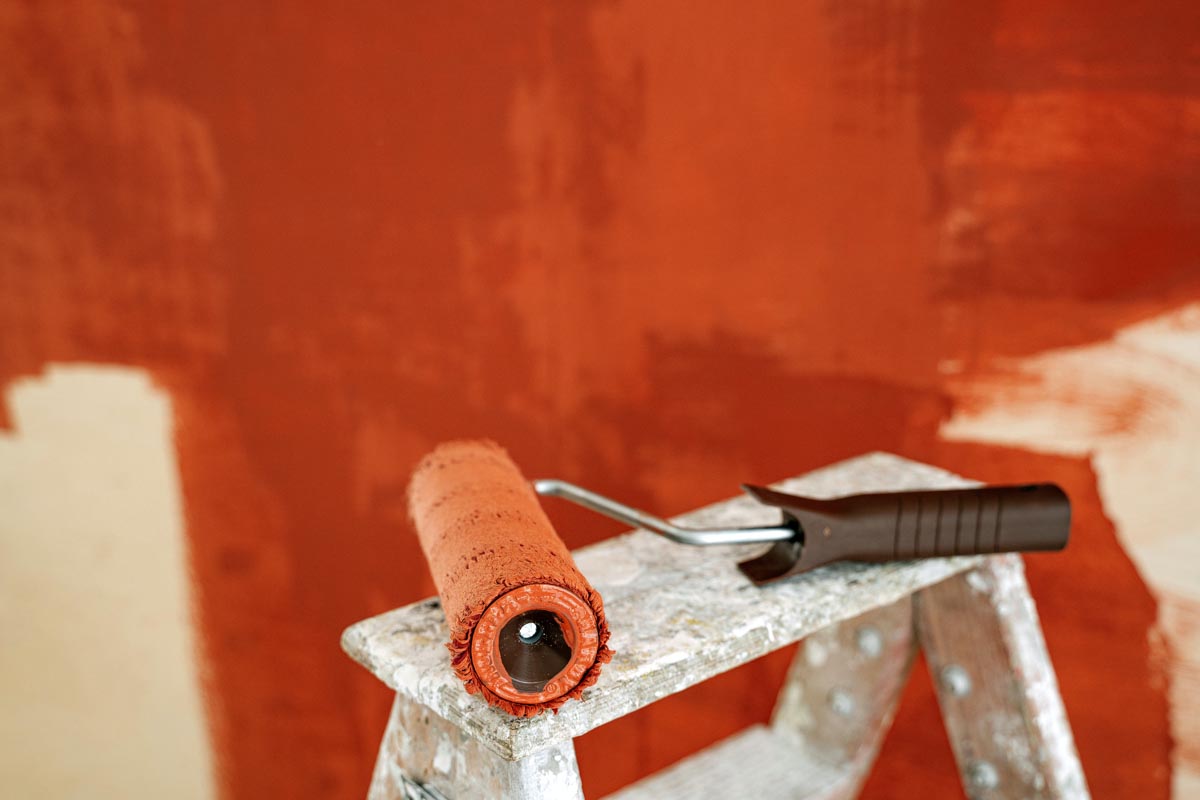It’s natural for first-time condo buyers to feel a little anxious about purchasing a home. It’s a huge financial decision that you don’t want to mess up, after all. At the end of the day, we simply don’t want to feel buyer’s remorse when we move into our new home.
The truth is, with careful planning, you can make a smart buying decision and have peace of mind in the process. This careful consideration starts with asking the right questions.
In this article, we tackled what to ask when buying a condo in the Philippines. Treat this as a guide as you sort out finances, choose your condo unit type, and go to property viewings.
1. What’s the average price of a condo in the Philippines?
This question is important, since it will give you an idea of the prevailing property values in a certain area. Ultimately, it will inform you if the place you’re eyeing is within your condo buying budget. Where exactly can you find information on average prices of condos? Well, you can start with your real estate broker. They know the ins and outs of the property market, so they will likely be able to share accurate price information with you.
 Photo courtesy of Sandy Millar via Unsplash
Photo courtesy of Sandy Millar via Unsplash
Another source of good information is online real estate marketplaces. Often, they have price indices on specific locations shown in property listings. Tune into industry reports as well, published regularly by consultancy firms. These usually contain price movements in the past months. These financial moves are important things to consider when buying a condo in the Philippines.
2. What is the average rent in Manila (or in the location you want)?
This is especially relevant for people who have been renting for a long time, and are finally considering buying a condo in the Philippines. You’re probably wondering whether it’s indeed better to own than rent. The average rent in the location you’re looking at can be a good deciding factor. When your monthly rental fee amounts to your monthly mortgage payments, it’s relatively safe to say that you can afford buying a condo in the Philippines.
It’s “relatively” safe because it’s not the entire cost for owning a home, take note. For one, there are taxes to pay when buying a condo in the Philippines, such as the real property tax.
In Metro Manila, you’ll be paying 2% of the assessed value of the property. In the province, the rate is 1%. Documentary stamp tax is one more thing you should settle. It’s usually 1.5% of the selling price or fair market value, depending on which is higher.
Therefore, as you consider the average rent, in connection with the monthly mortgage payments, think about the other homeownership costs mentioned. This should give you an idea if it’s practical to buy a condo in the Philippines, depending on your financial situation.
3. How much salary do you need to buy a condo in the Philippines?
Part of the steps in buying a condo in the Philippines is sorting out finances to qualify for the home loan. The amount of money you earn plays an important role in securing a mortgage. Banks and other lending institutions look at it to determine if you’re capable of paying back the money you borrowed.
Some lenders use the 28/36 rule in their loan assessment. The principle states that ideally, a borrower’s housing expenses should not exceed 28 percent of their gross monthly income. The total debt, which includes car loans and credit cards, shouldn’t go beyond 36 percent of the gross monthly income. Property seekers, especially new couples buying a condo in the Philippines, should pay attention to this rule to ensure that they don’t end up being “house poor’ – a term used to describe those who spend most of their income on homeownership – in the first years of their marriage.
 Photo courtesy of Pixabay via Pexels
Photo courtesy of Pixabay via Pexels
If you earn P100,000 a month, your monthly mortgage payments and other housing expenses shouldn’t exceed P28,000. Keep that figure as you look at condo options and check monthly amortization sample computation from developers. Stick to that homebuying budget rule, which is one of the best tips on buying a condo in the Philippines that you should keep in mind.
4. How much should your downpayment be on a condo
The downpayment is often the biggest upfront cost of home buying. Saving up for it, therefore, is one of the critical steps in buying a condo in the Philippines. Most developers require at least 20% downpayment. If you’re looking at a P1M condo, you need to save up P200K.
It’s ideal to have that amount of money from the get-go before condo hunting, but if that’s not possible, you can opt for these:
- Staggered downpayment schemes. Some developers offer this as part of their exclusive, limited-time offers. The payments are spread across a certain period, say, 12 to 18 months.
- Lower introductory price.Pre-selling condos, compared with RFO condo meaning ready-for-occupancy units, are relatively more affordable that the downpayment is more bearable.
- No downpayment condos. This also offers the benefit of a shorter period of processing real estate documents.
However, if you’re able, we strongly recommend following one of the most common condo buying tips: go for the 20% downpayment in one go. It will lower your monthly payments in the long run, and that gives you peace of mind as you take the crucial steps in buying a condo in the Philippines.
5. Can you own a condo unit forever?
Another version of this question goes, “What happens to a condo in the Philippines after 50 years?” Many believe that after a certain period, condos are demolished for being outdated, the million-peso investment put to waste. Thus, this is an important question to ask, especially if you’re wondering, is buying a condo in the Philippines a good investment? Should you invest in this kind of real estate, even?
This 50-year window belief actually came from a provision in Republic Act 4726, also known as the Condominium Act of the Philippines. People think that condos are only good for a certain period because the law provides that condo unit owners can bring an “action for partition” when:
“that project has been in existence in excess of 50 years, that it is obsolete and uneconomical, and that condominium owners holding in aggregate more than 50 percent interest in common areas are opposed to repair or restoration or remodeling or modernizing of the project.”
When you read carefully this provision of the law, it states that the action for partition can only be done when these requirements are satisfied: (1) the condo is over 50 years old, (2) it’s obsolete and uneconomical, (3) majority of the owners are against the rehabilitation of the building.
 Photo courtesy of Nadine Shaabana via Unsplash
Photo courtesy of Nadine Shaabana via Unsplash
Just because a condominium in the Philippines is 50 years old doesn’t mean it’s obsolete and uneconomical. With the technology today, construction has become more advanced, producing future-proof buildings. Moreover, if condo owners would prefer modernization of the building, then a demolition won’t be necessary. It’s also worth taking note that there are other conditions stated in the law for partition to happen.
Put simply, you don’t have to be worried over your million-peso investment being gone after 50 years. Rather than get anxious, the more proactive approach here is finding and buying a condo that can withstand the test of time. Always check the reputation of the developer you’re doing business with before buying. Go for those that have the track record of building sustainable residences and maintaining the quality of developments.
6. What are the modern conveniences near the condo?
Moving from finance-related questions, let’s tackle location. Before buying a condo, it’s important to consider the establishments around the home you’re eyeing. Are there supermarkets and grocery stores nearby? How far are the schools and hospitals? If you’re a single professional, it’s important to consider how long your commute will be to the office. The ideal condo location is one that makes all essentials within reach.
Aside from essential establishments, you should consider the proximity to public transportation as well. With a train station near your condo, you can reach different parts of the city with ease. One of the best tips on buying a condo in the Philippines is finding transit-oriented developments, those in close proximity to train stations.
7. What are the condo policies?
Some condos allow you to take your pets, while others don’t. Some are highly restrictive when it comes to renovations, while others are a bit more lenient. As early as now, you should embrace the fact that condo living means abiding by the rules. Therefore, before buying a condo in the Philippines, check the policies first and see if you can comply willingly and happily.
 Photo courtesy of Ivan Samkov via Pexels
Photo courtesy of Ivan Samkov via Pexels
Read the rules and regulations on renovations if you foresee yourself doing some major makeover in your unit in the next three to five years. Usually, condo associations require submitting actual renovation plans, depositing a construction bond, approval of the property management office, and names and government IDs of the construction workers. Learn the specific protocols in your target community before buying that condo.
The right condo buying questions matter when buying a home. It will help you sort out finances better and make the right call at the end of the day. Ultimately, it will give you peace of mind as you take on this major, life-changing decision.
For more information about condo buying, make it a habit to check our DMCI Homes Communities blog.


